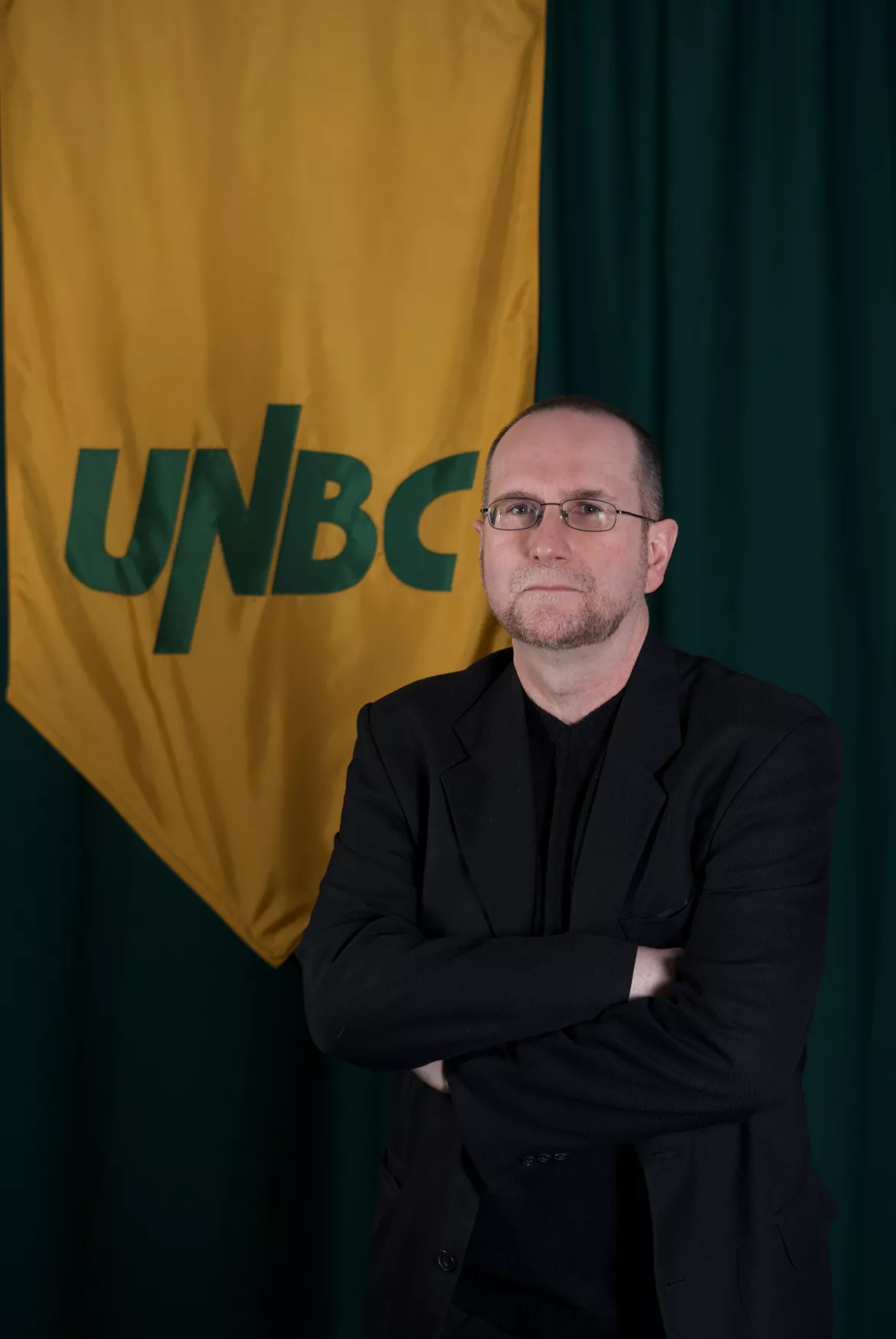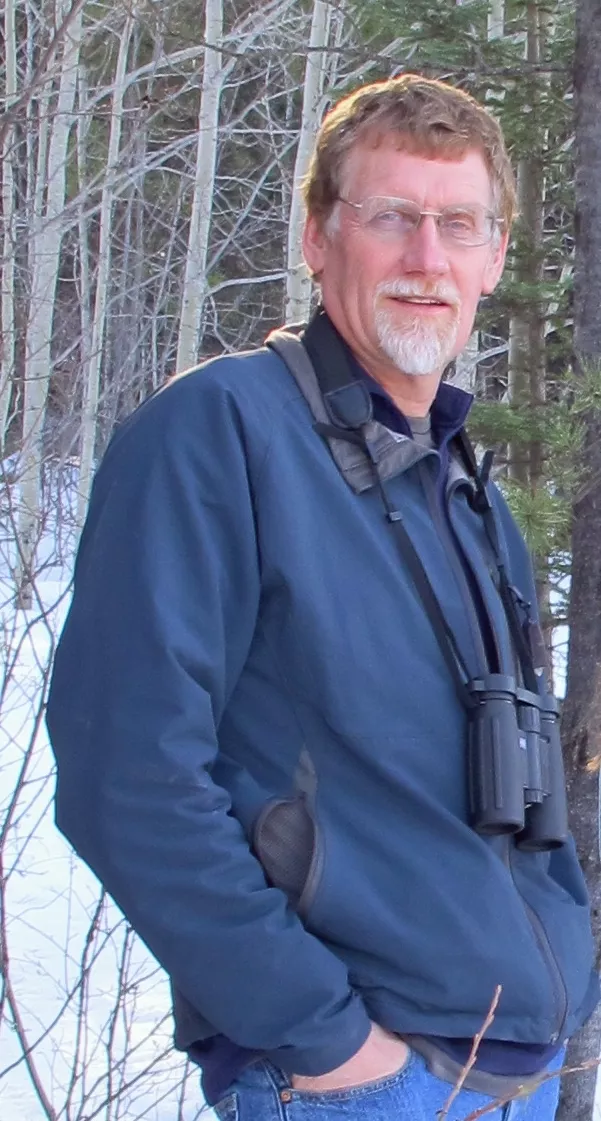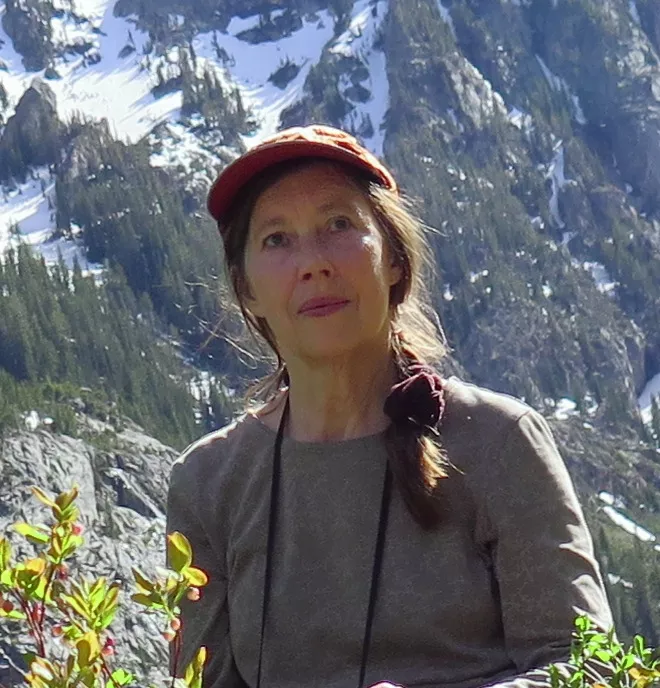Five distinguished Professor Emeriti recognized June 26

The University of Northern British Columbia is recognizing five distinguished Professors Emeriti in the electronic program at the University’s virtual Convocation on June 26.
Dr. Stan Beeler (English); Dr. Keith Egger (Ecosystem Science and Management); Dr. Michael Gillingham (Ecosystem Science and Management); and Dr. Mark Shegelski (Physics) have all been granted the title Professor Emeritus. Dr. Katherine Parker (Ecosystem Science and Management) has been named Professor Emerita.
Professor Emeritus and Emerita titles are an honorary rank and are awarded to outstanding professors who have retired.
BACKGROUNDER
Dr. Stan Beeler (English)
UNBC has benefitted from Dr. Stan Beeler’s scholarly expertise, superb teaching and dedication to his profession.

Dr. Beeler joined UNBC in the early 1990s. He has made significant contributions not only to the English Department but also to our University and to his profession.
His work in film and television is internationally recognized. His scholarly accomplishments include publishing four peer reviewed books, 10 book chapters, and numerous journal articles. He has also been awarded six grants over his tenure.
Dr. Beeler has demonstrated leadership throughout his career. He served as Chair of the English Department for several terms. He has held several leadership roles for the Canadian Comparative Literature Association and served as an external examiner for a dissertation and an assessor for a degree.
Dr. Beeler is an excellent teacher and his courses have been popular with undergraduate and graduate students alike.
He retired from UNBC in 2019.
“I am very pleased to receive this title as it is a concrete affirmation of my desire to continue my connection with UNBC faculty and students,” says Dr. Beeler. “I am especially honoured to be included with this year’s group of recipients.”
Dr. Keith Egger (Ecosystem Science and Management)
Dr. Egger joined UNBC in the mid-1990s and served in several leadership roles including Acting Dean, Chair of the Biology Program and inaugural Chair of the Ecosystem Science & Management Program.

A productive researcher, Dr. Egger published more than 50 peer-reviewed papers and several book chapters, gave 15 national and international invited presentations, co-authored more than 75 conference presentations with students and postdoctoral fellows, and aided in securing more than $3.1 million in research funding. Dr. Egger was an early adopter of molecular approaches for fungal systematics and microbial ecology.
As a teacher, Dr. Egger was innovative, using ‘flipped’ classrooms, pioneering web-based learning systems and using in-class student response systems for teaching and student self-evaluation.
Dr. Egger’s goal was to motivate students to take control and responsibility for their own learning, fostering critical thinking while adapting to different styles of learning and student circumstance.
Through classroom experimentation like this, Dr. Egger became a mentor to other instructors, received several teaching awards, and achieved top-level instructor evaluations from students, even in his remarkably large classes.
Dr. Egger retired in 2019.
”I think my proudest achievement is that students recognized my efforts to create a student-centred, active-learning environment in my large first-year biology class by nominating me for the University Achievement Award in Teaching which I received in 2015,” says Dr. Egger.
Dr. Michael Gillingham (Ecosystem Science and Management)
Dr. Gillingham has an exceptional record at UNBC having received the UNBC Award for Excellence in all four categories (Teaching, Research, Service, and Mentorship).
He joined the Biology Program at UNBC in September 1994, and since then has helped raise more than $10 million dollars for research.

In addition to more than 70 peer reviewed papers, multiple book chapters, and co-editing a seminal book, Dr. Gillingham provided recommendations in numerous influential technical reports.
Fostering important relationships in the wildlife sector, Dr. Gillingham lent complex quantitative analysis, modeling approaches, and fundamental theory to resource management and conservation decisions.
Students have noted that Dr. Gillingham designed and implemented highly effective assignments, and that they found their class and lab work meaningful.
Dr. Gillingham initiated the formation of the first Student Chapter of the Wildlife Society in BC., and was the founding Director of the Natural Resources and Environmental Studies Institute at UNBC.
Dr. Gillingham retired in 2019
“I’m honoured to receive this recognition. Working with the natural resource environment in today’s world requires many perspectives,” says Dr. Gillingham. “I am proud of my contributions to wildlife biology, the formation of the NRES Institute, and to a broader understanding of cumulative impacts.”
Dr. Katherine Parker (Ecosystem Science and Management)
Dr. Parker has an exceptional record of scholarly productivity, research impact, student mentorship and service to the University community.

Dr. Parker joined UNBC in September 1994 as an inaugural faculty member in the Forestry program. She received the university’s Excellence in Teaching Award twice, and helped develop a world-class integrated wildlife and fisheries degree.
Her direct supervision of master and PhD students, and her service on more than 40 other graduate committees, speaks to the commitment and motivation she has for students.
As a wildlife ecologist and physiologist investigating why species use their environments as they do, Dr. Parker’s research has contributed to wildlife science, management, and conservation. She served as the Ian McTaggart Cowan Muskwa-Kechika Research Professor for almost 20 years, studying interactions among large predator and prey species.
In addition to publishing more than 80 peer-reviewed papers, co-authoring a nutritional ecology text, and raising millions of dollars for research, Dr. Parker has given numerous presentations at national and international conferences.
Dr. Parker retired in 2019
“My greatest professional contribution has been to help build a university, bringing UNBC from a construction site to a respected institution that undergraduate and graduate students are proud to have attended,” says Dr. Parker. “As the Muskwa-Kechika Research Professor, I am privileged to have experienced the wilderness of the Muskwa-Kechika Management Area in northern British Columbia, researched its large-mammal systems, and learned from its local cultures.”
Dr. Mark Shegelski (Physics)
Dr. Shegelski is a founding faculty member in the Department of Physics, has taught more than 125 classes at UNBC, published more than 85 peer-reviewed journal articles with more than 80 undergraduate student co-authors, and has worked with researchers around the globe.

Dr. Shegelski has secured 25 years of continuous NSERC funding for UNBC. His research has appeared in a textbook on quantum mechanics, and as a leading authority on the physics of curling, his research has gained international notoriety and media coverage on the Discovery Channel, CBC’s Quirks and Quarks and more.
Impressively, Dr. Shegelski has earned an international reputation in multiple different fields of research.
He is also a science fiction author, a mentor to his colleagues, and has helped to launch the careers of a generation of UNBC students.
Dr. Shegelski retires on June 30.
"What I am most proud of is my continuous training of undergraduates in research. In my 26 years at UNBC, of more than 80 publications, I have published 43 papers with undergraduate co-authors and a total of 80 undergraduate co-authors on those papers,” says Dr. Shegelski. “This is a unique achievement. Raising a student's work up to the level deserving co-authorship has always been a challenge, and my students and I have been successful in doing so.”